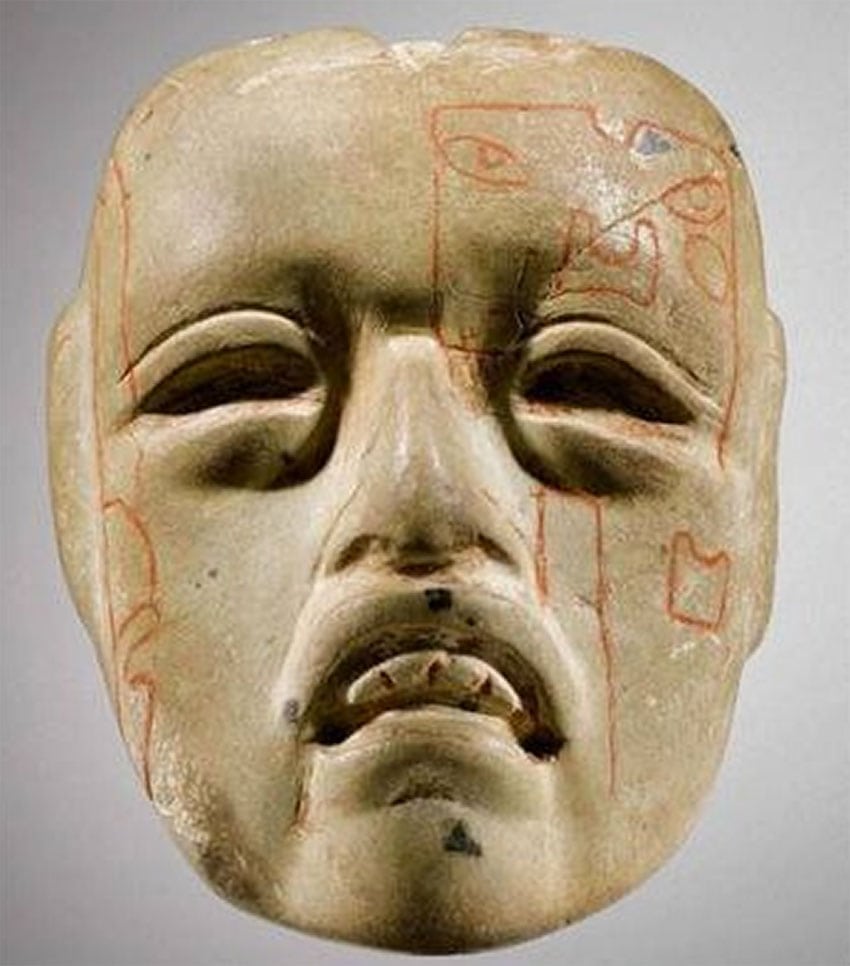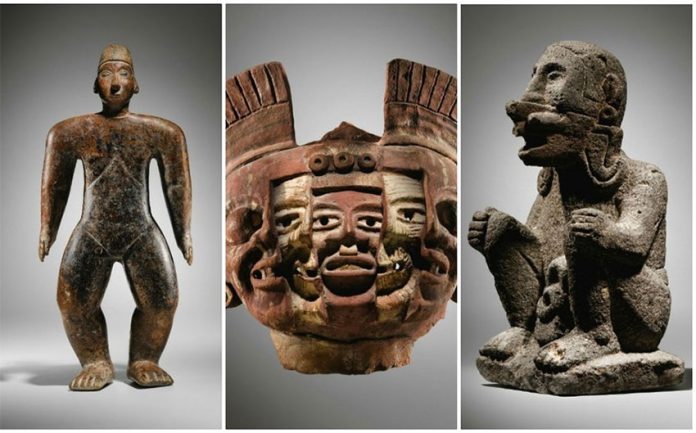Another auction of pre-Hispanic artifacts went ahead in Paris, France, on Wednesday despite the objections of the Mexican government.
Auction house Sotheby’s put 74 pieces on the block and 44 were sold for a combined total of 1.78 million euros (US $2 million).
Archaeological experts with the National Institute of Anthropology and History (INAH) determined that 57 pieces, described as “Pre-Columbian treasures from an important French collection,” were from Mexico.
Of that number, 35 were deemed to be genuine pre-Hispanic artifacts of the Mayan, Teotihuacán, Zapotec, Olmec and Mexica cultures while 22 were assessed as recently manufactured fakes.
INAH became aware of the auction on October 8 and immediately filed a complaint with the federal Attorney General’s Office and informed the Secretariat of Foreign Affairs and Interpol.

However, the efforts to stop the auction and have the Mexican artifacts repatriated ultimately failed.
“The auction took place like the others,” said INAH chief Diego Prieto. “France has a legal framework that isn’t favorable to the recovery of this heritage.”
An Olmec perforator made out of jade yielded the highest price at yesterday’s auction, selling for $209,000. A stone Olmec mask was bought for $181,000 while two Teotihuacán masks went for $153,000 each.
A terracotta ornament featuring five heads and said to originate from Veracruz sold for $125,000 while a Mayan vase went for $111,500.
Sotheby’s auction followed one held by Millon auction house in Paris in September at which 120 supposedly pre-Hispanic artifacts went under the hammer. INAH has also detected that pre-Hispanic relics are hawked on e-commerce sites and social media platforms such as Facebook.
Prieto told the newspaper La Jornada that the Mexican government will continue to speak to French authorities with a view to recovering objects that it says rightfully belong in Mexico and never should have left the country.
He said the government will do what it can to strengthen international treaties and agreements that aim to stop the illicit trade of cultural artifacts.
Prieto said that INAH has managed to recover artifacts from Italy, Germany and the United States and hopes to recover an additional 80 objects before the end of the year.
Source: El Universal (sp), Milenio (sp), La Jornada (sp)
